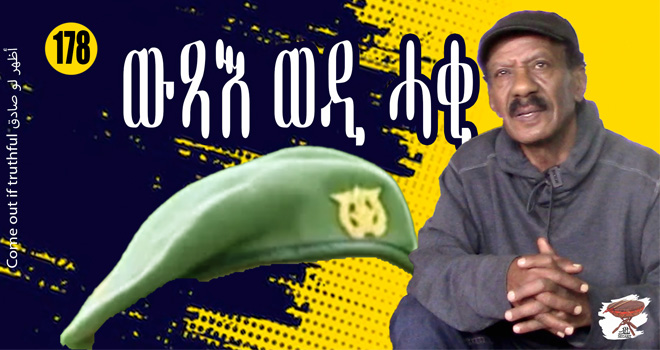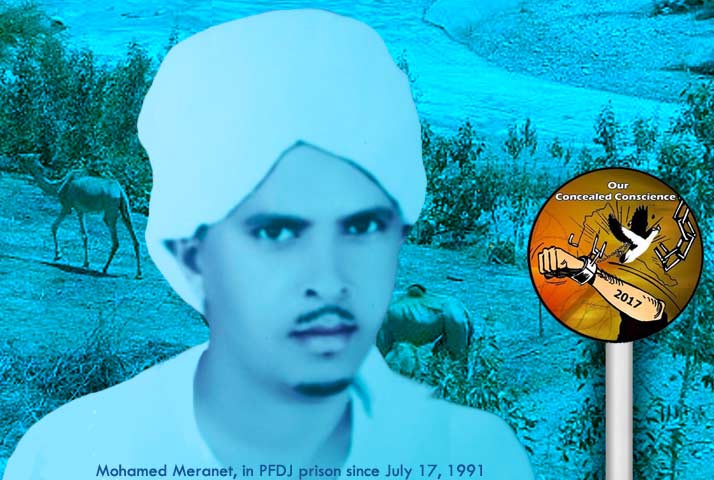Come out Equipped With Truth
In an opposition member accepts and promotes all the values of the incumbent regime and adopts all its decisions and symbols, then, what is it opposing? Worse, if you are a single-issue opposition to the regime, what happens if the regime agrees to your issue, what will you be opposing? Ladies and gentlemen, if you are wondering why the Eritrean opposition is dysfunctional and fragmented, find out who is an opposition element and does he see governance holistically or partitioned in select, inconsequential demands? If you truly believe in equality, then why get infuriated at people who hold a different view that yours? Is that a result of believing in The Isais Constitution? Can someone who believes in constitutionalism and equality behave that way?
Throughout the last twenty years, I have seen many attempts from fragments of the opposition, some seem focused on removing Isaias only, leaving everything else intact. Some even do not hide their wish to inherit the PFDJ minus its capo and their intolerance and exclusionary behaviors trigger suspicion and skepticism. They tend to think their narrow social, geographical, and partisan circles are the only representatives whose views only should be promoted. Totally oblivious about the wishes of chunks of their compatriots. Eritreans cannot be salvaged by solving one problem but leaving behind a bigger one.
In 2001, we received a copy of the Party Formation Law that the Sherifo led committee disseminated. I am my colleagues at awate.com endorse that document against the will of and faced criticism by our traditional allies at the time. We hope that would create a bridge within the opposition. It didn’t because some were ready to reconcile the bitter history, others totally refused to be magnanimous.
September 25, 2002, Awate.com held a consultative meeting in Amersfoort, Netherlands where Herui Bairu advocated to run for the upcoming election. The meeting dully endorsed him after a serious debate. I supported that with magnanimity hoping to help create a solid alliance. It didn’t work because no elections were carried out by the PFDJ as promised. So, if you are wondering, I do not give up on something unless I try everything possible. Now allow me to share with you the timelines of the events….
The following timelines are from the Chronicle of the Reform Movement, a document by The Awate Team published on December 2, 2002. I hope it sheds light on what brought us to where we are today.
Constitution in Our History
As you know, after the defeat of Italy, (with a brief British Military Administration period), Eritrea and Ethiopia were ruled by the Ethiopian emperor’s constitution followed by the Federation Constitution that was violated by the emperor, followed by Derg military rule until the liberation of the Eritrean land in 1991. The victorious EPLF established a transitional government which the PFDJ slowly, and cunningly, replaced by its whimsical one-party rule—it was the birth of dictatorship.
The Ethiopian emperor ruled the region using laws that are a product of an ancient theocratic law written around 1240, in Arabic, by Abul Fadil Ibn AlAssaal, a Coptic Egyptian. It was known as Fit’he Negest. And by 1563, during the reign of Sertse Dinghil, the Fit’he Negest became the law of the land and remained the supreme law until 1931 when it was replaced by Haile Selassie’s constitution. Now let’s jump to the post-Badme-era, the year 2000.
Post-Badme-Era Starting in December 2000
- In December 2000, the defunct National Assembly, which was composed of the PFDJ leaders, and the organizations supporters selected members, decided on Eritrea’s first election and appointed a committee headed by Mahmoud Sherifo to draft the electoral and party formation laws—a prerequisite for any election.
- on January 23, 2001, Sherifo’s committee concluded its first draft and disseminated copies of the draft to members of the National Assembly, and via a request to the Ministry of Information, scheduled interviews with the government media for January 30, 2001, to explain the draft.
- On February 5, 2001, on the eve of the date the Committee on Drafting Political Parties & Organizations had a scheduled a meeting to discuss the obstacles it faced from the President’s office in carrying out its duties.
- On February 7, 2001: Sherifo, the Vice President of Eritrea, the Minister of Local Governments, and the National Assembly-appointed Chair of the Committee to Draft Electoral Laws, was fired by Isaias; his subordinates (the Regional Governors) who were ordered to report directly to the President’s Office.
- …On April 6, 2001: TSigenay, a private Eritrean newspaper, interviewed Sherifo who explained the crisis at length.
- … Sherifo had said, “…the non‑existence of political forces that compete with the PFDJ has caused a stagnation in the operational development of the efficiency of the organization and the government which became the main reason for administrative procrastination, nepotism, corruption, and bureaucratic retard ness as well as the negligence towards the crucial issues of the development of the nation and the society.”
- On April 12, 2001, The First Comprehensive Manifesto for Reform, A manual, was penned by “Tesfay-Sherif”, a pseudonym for “one or more” PFDJ Reformers surfaced. It extensively assessed the ruling party’s practices and their impact on the Eritrea-Ethiopia war. It said, “The President and his inclination towards contempt of institutionalization and towards dwarfing the capabilities of his companions as well as his interest in having a say on everything, has greatly contributed to rendering the institution a mere puppet.”
- …July 17, 2001: The Eritrean Ambassador to Scandinavian countries, Ms. Hebret Berheh, resigns her position and disclosed her reasons for doing so in a letter she sent to awate.com, she wrote: “The PFDJ led by President Isaias, is today characterized its strong opposition to reform and democracy. When people are eagerly waiting for a democratic transition, PFDJ is postponing it indefinitely. When people are aspiring for the rule of law, it’s being stifled, and Kangaroo courts (Special Court) are firmly in place doing a great disservice to justice. A one-man rule has been firmly installed rendering the slightest democratic practice impossible.
- Ambassador Hebret Berheh accused the government of Eritrea of “contempt for the Eritrean people” for failing to officially inform the citizenry of the postponement or cancellation of the elections scheduled for December 2001.The Eritrean National Assembly, which authorized the timetable for the election did not convene for a single session in 2001 and until now, 2022.
- August 15, 2001: Gedab News reported that Traffic police stopped Sherifo’s car and ordered him with his driver out of the car and drove it away. At 11 AM, guards from the President’s office informed Sheriffo that they have orders to get him out of his office. Asked about the incident by a reporter, Sherifo said “the car and the office [are] government property; but they could have done it in a proper legal manner instead.”
- September 11, 2001 (911) the Pentagon in DC, and Twin towers were hit by terrorists and the world entered a chaotic era.
- September 18 – 19, 2001: In dawn raids, the Government of Eritrea arrested eleven of fifteen Reformers at their homes. The government alleged that the group had committed crimes against the sovereignty and national security of the state.
- awate. com was the first that identified the G15’s agenda and coined the term “Reformers” to describe them. No one objected to that term except the late Adhanom Gebremariam who angrily objected, “We are not reformers, we are seeking a fundamental change [surnekqal]—a Tigrinya term I heard for the first time from him.
- September 30, 2001: the late Ambassador Girma Asmerom held a public meeting in Washington, DC to discuss the draft laws on elections The attendees passed a resolution “unanimously and with a standing ovation.” their third resolution read, “after observing, in depth, the campaign conducted by a few leaders and their supporters while we were engaged in safeguarding our sovereignty and reconstruction efforts, we conclude that the movement–which is not timely, diverts us from our national focus to other undesirable venues, endangers our unity and mutual trust, creates fissures that could be exploited and dilutes our energies from focusing on important matters—is destructive. As a sign of commitment, the assembled group pledged $100,000 to the Eritrean government.
- In an interview with a Swedish radio station, Yemane Gebreab, political advisor to President Isaias Afwerki said that elections in Eritrea scheduled for December 2001 had been postponed.
- In response, the Eritrean website, Asmarino.com, interviewed a spokesperson for Eritrean Embassy in the US, who said, “the elections have not been postponed and will take place as scheduled in December 2001.”
CONCLUSION:
Before we continue let’s realize that there cannot be a proper constitutional conference without political parties. Otherwise, a constitution will remain a useless paper like it was since it was cocked. There are not many Eritreans who will surrender their fate to any single-party government that will continue the PFDJ tyranny of the last 31 years. And those who so-confidently say, “we can amend it”, cut that out. No one can amend anything when under the guns of a single party, where the line between the government and the ruling party is non-existent.
Final Question, if you accept all decisions taken by the PFDJ, if you adopt its positions, copy its tone and narration, I kindly plead to you to ask why do you oppose the PFDJ? If the PFDJ says it will implement its constitution, will you stop opposing it or continue to oppose it? But what will be your points of opposition? What do you stand for?
In this struggle, there are no grey areas, you either oppose the PFDJ injustice or not; this indecisiveness was the main reason for the fragmentation and weakness of the opposition.
Don’t worry, the gloves are out, and we must call things with their right names—the meek, gentle arguments, not to hurt the feeling of people, didn’t take us anywhere. It gave us the Agazian, the Neo Andenet, and those who stand for nothing at all got emboldened and put the opposition in a quicksand.
References:
Feb 2, 2001, Sherifo Arrested: https://web.archive.org/web/20011202110502/http:/awate.com/
Dec 2, 2002, Chronology of the reform movement: http://awate.com/the-chronology-of-the-reform-movement/
A Crisis of a Ruling Regime or An International Conspiracy? A Glance at the Administration of the Battle (Tesfay Sherif)
https://awate.com/a-crisis-of-a-ruling-regime-or-an-international-conspiracy-a-glance-at-the-administration-of-the-battle/
National Salvation: A Citizen’s Approach Citizen’s Initiative for the Salvation of Eritrea
https://awate.com/national-salvation-a-citizens-approach-citizens-initiative-for-the-salvation-of-eritrea/
Build A Bridge And Walk Over it: November 26, 2001https://web.archive.org/web/20011202110502/http://awate.com/




Awate Forum